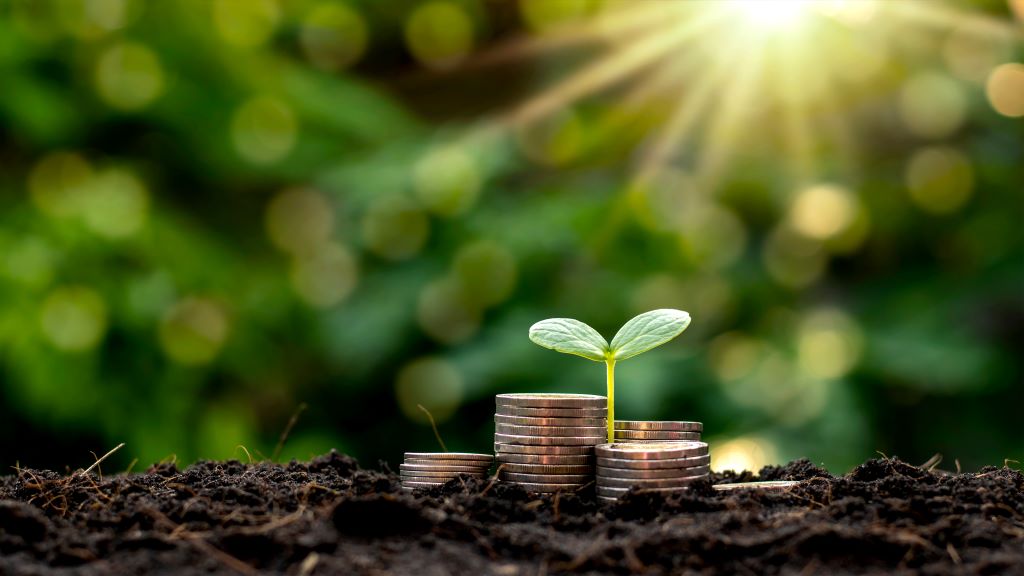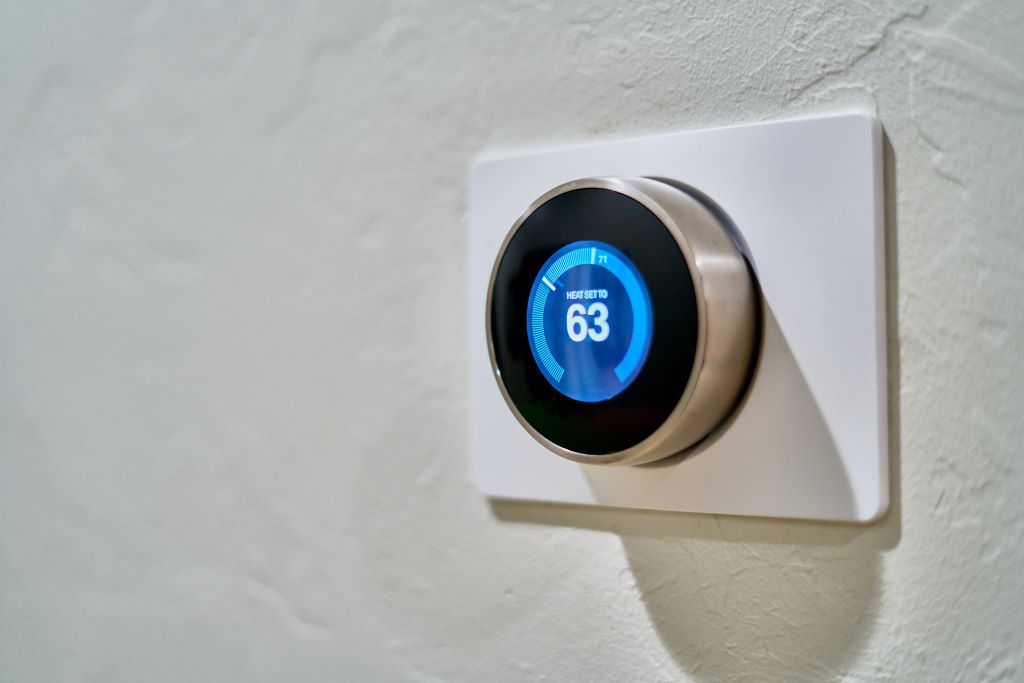As the world faces the effects of climate change and escalating energy prices, adopting energy-efficient practices has become more important than ever. Not only does reducing energy consumption benefit the environment by lowering greenhouse gas emissions, but it also returns significant financial savings for both homeowners and businesses. In this blog, we’ll answer some popular questions about energy conservation, and we’ll share seven effective tips to cut energy costs, highlighting the multiple advantages that come with conserving energy.
How to Lower My Energy Bill
To lower your energy bill and make your home more energy-efficient, consider applying these energy-saving practices:
- Unplug electronic devices when not in use.
- Use energy-efficient appliances and lighting.
- Seal air leaks around doors and windows.
- Set your thermostat to an energy-efficient temperature, especially when you’re not home.
- Turn off the A/C and open your windows when the weather allows for it.
- Conduct an energy audit to identify areas for improvement.
- Practice energy-conscious behaviors, such as turning off lights when not needed.
Tips to Save Energy at Home
There are several ways to reduce electricity consumption and cut energy costs. Try out some of these best ways to conserve energy:
- Upgrade to energy-efficient appliances and LED lighting.
- Install a programmable or smart thermostat to optimize heating and cooling.
- Use power strips to easily turn off multiple devices at once.
- Seal air leaks and insulate your home properly.
- Adjust water heater temperature to a lower setting.
- Use natural light during the day and switch to energy-efficient curtains or blinds.
- Consider using fans instead of air conditioning when possible.
- Consider using a clothesline instead of a dryer for laundry.

Energy-Saving Appliances and Devices
Energy-saving appliances and devices are designed to consume less energy while maintaining performance. Examples include ENERGY STAR-rated appliances (e.g., refrigerators, washing machines), LED bulbs, smart thermostats, and energy-efficient HVAC systems.*
Energy-Saving Tips for Winter/Summer
In winter:
- Lower the thermostat when not at home or overnight.
- Use draft stoppers to seal gaps under doors and windows.
- Dress warmly to reduce the need for heating.
- Keep curtains open during sunny days for natural heating.
- Consider using a space heater for targeted heating.
In summer:
- Set the thermostat higher when you’re away.
- Use fans to circulate air and reduce reliance on air conditioning.
- Close curtains and blinds during the hottest parts of the day.
- Keep lights off when not needed, as they generate heat.
- Use energy-efficient appliances that produce less heat.
How to Reduce Energy Usage in the Office
To reduce energy usage in the office, check out some of these energy-saving tips for businesses:
- Use energy-efficient lighting and equipment.
- Encourage employees to turn off lights and devices when not in use.
- Implement a paperless policy to reduce printer and copier usage.
- Adjust the thermostat to a comfortable yet energy-efficient temperature.
- Conduct an energy audit to identify specific areas for improvement.
Energy-Saving Grants and Incentives
Many governments and organizations offer grants and incentives to promote energy conservation and the use of renewable energy sources. These programs may provide financial assistance or tax credits for energy-efficient upgrades and installations.
Energy-Efficient Lighting Options
Energy-efficient lighting options include LED bulbs and CFLs (compact fluorescent lamps). These bulbs use significantly less energy and have longer lifespans compared to traditional incandescent bulbs.
How to Choose Energy-Efficient Windows and Doors
When choosing energy-efficient windows and doors:
- Look for ENERGY STAR-rated products.
- Consider double or triple glazing for better insulation.
- Opt for Low-E coatings to reduce heat transfer.*
- Choose well-insulated frames to prevent drafts.
Does Unplugging Electronics Save Energy?
Yes, unplugging electronics and devices when not in use can save energy. Many devices continue to draw power even when turned off, known as “phantom” or “standby” power consumption. Unplugging them eliminates this unnecessary energy usage.
How to Program a Smart Thermostat for Energy Savings
To program a smart thermostat for energy savings:
- Set energy-efficient temperature ranges for different times of the day.
- Adjust temperature settings based on your daily routines.
- Use “away” or “vacation” mode when you’re not at home.
- Take advantage of remote control features to manage your thermostat when away.

Renewable Energy Options for Home Use
Renewable energy options for home use could include:
- Solar panels to harness solar energy.
- Wind turbines to generate wind power.*
- Geothermal heat pumps to utilize the earth’s natural heat.
- Biomass energy systems that use organic materials for fuel.
Energy-Saving Habits and Practices
Energy-saving habits and practices could include:
- Turning off lights and devices when not in use.
- Unplugging chargers and electronics.
- Using energy-efficient appliances and lighting.
- Adjusting the thermostat for optimal heating and cooling.
- Sealing air leaks and insulating the home properly.

Is Solar Power Cost-Effective for Homeowners?
Solar power may be cost-effective for homeowners, depending on factors such as location, available incentives, energy consumption, and the cost of traditional electricity. Over time, solar panels may lead to significant savings on energy bills and may increase the value of the property.
How to Conduct an Energy Audit at Home
To conduct an energy audit at home:
- Identify areas of energy consumption (heating, cooling, lighting, etc.).
- Check for air leaks and insulation issues.
- Assess the efficiency of appliances and electronics.
- Review energy bills and usage patterns.
- Seek professional assistance or use online tools to conduct a comprehensive audit.
Energy-Efficient Heating and Cooling Systems
Energy-efficient heating and cooling systems include:
- Heat pumps, which transfer heat rather than generate it.
- High-efficiency furnaces and boilers.
- Ductless mini-split systems for targeted heating and cooling.
- Programmable or smart thermostats for optimized temperature control.
Insulation Options for Energy Efficiency
Insulation options for energy efficiency could include:
- Fiberglass insulation, which is cost-effective and widely used.
- Cellulose insulation made from recycled paper or other natural fibers.
- Spray foam insulation for sealing small gaps and crevices.
- Reflective insulation that reflects heat away from the living space.
Now, for what you’ve been waiting for… Let’s jump into the best tips to cut energy costs.

7 Tips to Cut Energy Costs
Upgrade to Energy-Efficient Appliances
Outdated and inefficient appliances can significantly contribute to inflated energy bills. When it’s time to replace your home appliances, opt for energy-efficient models with the ENERGY STAR label. These appliances consume less electricity while delivering the same performance, making them a cost-effective investment in the long run. From refrigerators to washing machines, energy-efficient appliances may not only reduce your energy bills but could also extend the lifespan of your equipment.
Seal Air Leaks and Insulate
A well-insulated home is crucial in maintaining comfortable temperatures and reducing energy consumption. Inspect your home for air leaks around doors, windows, and other openings. Seal any gaps or cracks using weather-stripping or caulking. Make sure your home is properly insulated, especially in the attic and walls. Proper insulation prevents heat loss during winter and keeps your home cooler during summer, minimizing the need for heating and cooling systems.

Invest in Smart Thermostats
Smart thermostats can offer a great way to optimize your energy usage. These devices can be programmed to adjust the temperature based on your daily routines, reducing unnecessary heating or cooling when you’re away from home. Some smart thermostats even learn your preferences over time and make automatic adjustments for maximum energy efficiency. By efficiently managing your HVAC system, you can substantially cut down on your energy bills without sacrificing comfort.
Embrace Energy-Efficient Lighting
Switching to energy-efficient lighting, such as LED bulbs, is a simple yet effective way to save energy and money. LED bulbs consume significantly less energy than traditional incandescent bulbs and can have a much longer lifespan. While they may be slightly more expensive upfront, reduced energy consumption and longer durability can make these a cost-effective choice in the long term. Additionally, consider using motion sensors or timers to control lighting in areas with minimal foot traffic, to conserve even more energy.
Unplug Electronics and Appliances
Even when turned off, many electronics and appliances continue to draw power. Unplugging these devices when not in use can add up to noticeable energy savings over time. Consider using power strips to easily disconnect multiple devices simultaneously. By making a habit of unplugging, you can save on energy costs while also reducing your carbon footprint.
Opt for Energy-Efficient Windows
Windows play a crucial role in your home’s energy efficiency. Consider upgrading to energy-efficient windows with double or triple glazing, low-emissivity coatings, and insulated frames. These features help to minimize heat transfer, keeping your home comfortable and reducing the workload on your heating and cooling systems. Although window replacements may represent a more significant upfront investment, the long-term energy savings and increased property value make it a worthwhile consideration.
Practice Energy-Conscious Behavior
Changing daily habits can go a long way in reducing energy consumption. Encourage others to turn off lights, computers, and other devices when not in use. Make it a point to use energy-intensive appliances, such as washing machines and dishwashers, during off-peak hours when electricity rates are typically lower. Additionally, hang-dry clothes whenever possible, as dryers consume a large amount of energy.
Benefits of Energy Conservation
Conserving energy may not only positively impact your finances but could also offer several environmental advantages. By reducing energy consumption, we can:
- Combat Climate Change:* Lowering energy usage results in reduced greenhouse gas emissions, which are a leading cause of climate change. By cutting our carbon footprint, we actively contribute to lessening global warming and its devastating consequences.
- Preserve Natural Resources:* Energy production relies heavily on limited resources like fossil fuels. Conserving energy means using fewer of these non-renewable resources, thereby preserving them for future generations.
- Enhance Energy Security:* Reducing energy demand can lead to reduced dependence on imported energy sources. A focus on renewable energy further supports national energy security by diversifying the energy mix and promoting domestic energy production.
- Boost Economic Growth:* Energy efficiency initiatives create job opportunities in various sectors, from manufacturing and construction to research and development. This stimulates economic growth and promotes innovation.
- Improve Air Quality:* Lower energy consumption means reduced emissions from power plants and vehicles, leading to improved air quality and better public health outcomes by reducing respiratory and cardiovascular diseases.
Follow These Tips to Cut Energy Costs
Adopting energy-efficient practices is not only a responsible choice for the environment but may also be a smart financial decision. By following these tips to cut energy costs, you could save significantly each month. The benefits extend far beyond your wallet, including environmental preservation, enhanced energy security, and improved public health. Embracing energy conservation is a small yet powerful step towards creating a sustainable future for generations to come. So, let’s join hands and make a positive impact on our world today.
High-interest lines of credit can be expensive and should be used only for short-term financial needs, not long-term solutions. Customers with credit difficulties should seek credit counseling. The opinions expressed above are solely the author’s views and may or may not reflect the websites or its affiliate’s opinions and beliefs. Flexibility does not provide financial advice.
* This blog contains links to other third-party websites that are not endorsed by, directly affiliated with, or sponsored by Flexibility. Such links are only for the convenience of the reader, user, or browser.
